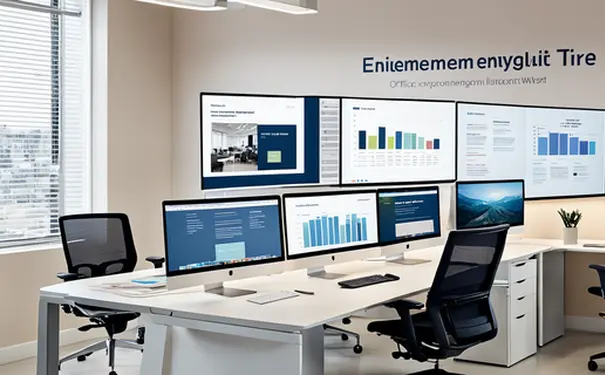
农业项目投资管理需要专注于以下几个核心方面:项目选择、投资策略、风险控制、资金管理和项目监管。对于这些方面,最值得展开的是项目选择,因为它是项目成功与否的决定性因素。项目选择要求投资者具备良好的市场洞察能力,理解不同农业项目的周期性和技术要求,并能够评估土地、气候、水资源等自然条件对项目成功的影响。
一、项目选择
项目选择是农业投资管理中最为关键的一步。具体来说,投资者需要全面评估项目的市场前景、生产成本、技术难度、资源需求和环境适应性。投资者应该选择那些符合市场需求、具有一定技术门槛、并且环境条件可控的项目来降低风险并提高收益潜力。
在选择具体的农业项目时,市场研究与分析非常关键。了解消费者需求、预测市场趋势、评估竞争对手的情况都是不可或缺的。例如,如果某种作物在国际市场上需求增长,则可能是一个值得投资的项目。同时,也要考虑本地市场的饱和度以及供求关系。
二、投资策略
决定了投资项目后,制定合适的投资策略同样重要。这包括投资时机的选择、资金的配置等。投资时机的选择要根据作物的生长周期、市场行情等因素综合考虑。例如,在作物种植前期投入,以便在收获季节获得投资回报。
投资策略还应该包括多元化投资,降低依赖单一作物或单一市场的风险。通过投资多个不同类型的农业项目或拓展至上下游产业链,可以有效分散风险。
三、风险控制
农业投资面临着众多的风险,包括自然灾害、市场波动、政策变动等。建立有效的风险控制机制是管理农业投资不可忽视的一环。风险控制包括对农业生产中可能出现的风险因素进行预测和评估,建立应对策略,如通过保险产品转移风险、采用先进技术减少自然灾害带来的损失等。
同时,与地方政府及相关机构建立良好关系,可以更好地应对政策变动带来的影响。在长期投资中,了解和适应政策的变动对于保护投资回报至关重要。
四、资金管理
资金是农业投资的血液,合理调配资金、确保资金的有效流动对项目的持续运营和扩展至关重要。资金管理不仅包括初始投资资金的筹集,还包括运营期间的资金安排。
对于耕地购买、设备投入、种子购买等初始投资,需要进行仔细的成本预算和资金筹集规划。运营期间,则要确保有足够的流动资金来应对日常支出,如员工工资、维护费等,并对收益进行再投资或储备以应对未来可能的大规模支出。
五、项目监管
项目监管是确保投资效益的关键步骤。监管范围涵盖项目实施的每个阶段,如土地准备、种植、管理、收获、储存、销售等。定期进行项目评估、确保项目按计划进行是必须的。监管还包括对项目团队进行管理和培训,确保他们有合适的技能和动力完成目标。
此外,运用现代信息技术手段,如卫星监测、物联网等,可以有效提高监管效率。实时数据可以帮助及时调整项目管理策略,减少损失。
农业项目投资管理是一个全方位、多层面的过程。它要求投资者不仅要有前瞻性的市场洞察,还要具备严密的风险控制能力、周密的资金管理计划以及效率高的项目监管策略。通过综合考量并实施这些策略,投资者可以在变化莫测的农业市场中稳健地实现投资收益。
相关问答FAQs:
FAQs about Agricultural Project Investment Management
Q1: What are the key steps involved in managing agricultural project investments?
A: Managing agricultural project investments involves several key steps. First, it is important to conduct thorough market research to identify potential investment opportunities and assess their profitability. Second, developing a comprehensive business plan with clear objectives, strategies, and financial projections is crucial. Third, finding reliable partners or suppliers and negotiating favorable agreements is essential. Fourth, implementing effective risk management strategies to mitigate potential threats is important. Lastly, regularly monitoring and evaluating the project's performance and making necessary adjustments to ensure its success.
Q2: How can I evaluate the profitability of an agricultural project for investment?
A: Evaluating the profitability of an agricultural project requires a systematic approach. Start by analyzing the market demand and supply dynamics for the chosen agricultural product. Assess the projected production costs, including land acquisition, equipment, labor, and other inputs. Consider factors such as weather conditions, potential pest or disease outbreaks, and market price fluctuations that could impact profitability. Additionally, evaluate potential risks and develop contingency plans to minimize their impact. Lastly, calculate the potential return on investment (ROI) based on projected revenue and costs to determine the project's profitability.
Q3: What are some effective risk management strategies for agricultural project investments?
A: Managing risks is a critical aspect of agricultural project investment management. One effective strategy is diversifying the project's production by investing in multiple crops or livestock species. This helps to mitigate the risks associated with price fluctuations or unexpected market events. Another strategy is to establish effective pest and disease prevention measures to protect crops or livestock from any potential outbreaks. Implementing proper insurance coverage for the project and ensuring compliance with legal and regulatory requirements are also important risk management measures. Finally, staying updated on market trends and technological advancements can help investors anticipate and adapt to potential risks.
文章标题:农业项目投资如何管理的,发布者:飞飞,转载请注明出处:https://worktile.com/kb/p/955283

 微信扫一扫
微信扫一扫  支付宝扫一扫
支付宝扫一扫 




